Digital Addiction
Question
- why don’t just use total mobile time but choose FITSBY time?
Note
- control the time usage of web brwoser? impossible
- addiction = habit formation (rantion addiction) + self-control problem (temptation)
“Sections 3–5 detail the experimental design, data, and model-free results. Section 6 presents the model estimation strategy and parameter estimates, and Section 7 presents the modeled effects of temptation on time use”
Temptation (Banerjee and Mullainathan, 2010)
consumer choose
is a temptation goods reflects the amout of temptation
naitve in misperceiving temptation
- fully naiive if
Utility function: quadratic flow utility
measures the demand slope ( ) regulates the extent of habit formation is a deterministic period-specific demand shifter
Projection Bias
follow Loewenstein, O’Donoghue, and Rabin (2003)
consumer maximize a weighted average of:
utility given current habit stock
utility given predicted habit stock
Predicted habit stock
Combine them up
Experimental Design
Treatments
2*2 design: whether provide Bonus and whether provide limit (a committment device to control screen usage)
MPL(0.2%): randomly choose to pay for the chosen row
- make them believe the design

How do each treatment work
Habit formation in Bonus treatment
People reduce FITSBY usage when receiving incentives, and continue to do so after the incentives are gone. (56 to 19 mins per day)
Self-control in Limit Treatment
eliminate share
Bonus Treatment
Goal: identify projection bias (
Payment: paid by 50$ per hour reduced in average daily FITSBY usage below a Bonus Benchmark hours ( = period 1 average FITSBY usage)
Treatment: Bonus treatment provides the money but Bonus Control do not.
Measurement
projection bias
: anticipatory response to the bonus in period 2 (before the incentive was in effect) price response parameter
: actual response in period 3 (while the incentive was in effect) long-term effects: screen usage in periods 4 and 5 (after the incentive had ended)
Limit Treatment
Goal: understand self-control problems and estimate
Treatment:
limit FITSBY usage through optional app notification
The participants can have extra time once after a delay, and the time is randomly assigned with
- this data serves for another paper
Measurement
- use of the limits as evidence of perceived self-control problems (
)
Bonus and Limit Valuations
help identify perceived temptation
MPL (incentive-compatible multiple price list)
- certain income or Bonus ($150 to $0)
- Incentive compatible: participants in MPL treatment (0.2%) received what they chose
Predicted Usage
Survey 2 informed participants of past usage and let them predict:
- usage over the next period (3 weeks)
- reduced time over the next three weeks
Survey Outcome Variables
In Survey 1, 3 and 4, ask questions about:
- addiction attitudes (Ideal use change; Addiction scale; SMS addiction scale; Phone makes life better)
- subjective well-being
Ideal use change
For people who said they used their smartphone “too much” or “too little,” ask about the time they wanna change
Addiction scale
modified from Mobile Phone Problem Use Scale (Bianchi and Phillips 2005) and the Bergen Facebook Addiction Scale (Andreassen et al. 2012)
SMS addiction scale
another scale, includes some questions in addiction scale
Phone makes life better
-5 (“Makes my life worse”) through 0 (“Neutral”) to +5 (“Makes my life better”)
- Surveys 1, 3, and 4 asked questions designed to measure participants’ perceptions of their addiction and subjective well-being (SWB)
- nine weeks between survey 1 and 4, sent three text messages per week with a subset of questions
Subjective well-being
earlier work (Allcott, Braghieri, Eichmeyer, and Gentzkow 2020)
Experimental Procedure
Survey 1
baseline demographics, and drop “bad” participants
balanced randomization by:
- above- versus below-median baseline FITSBY use
- restriction index
- addiction index
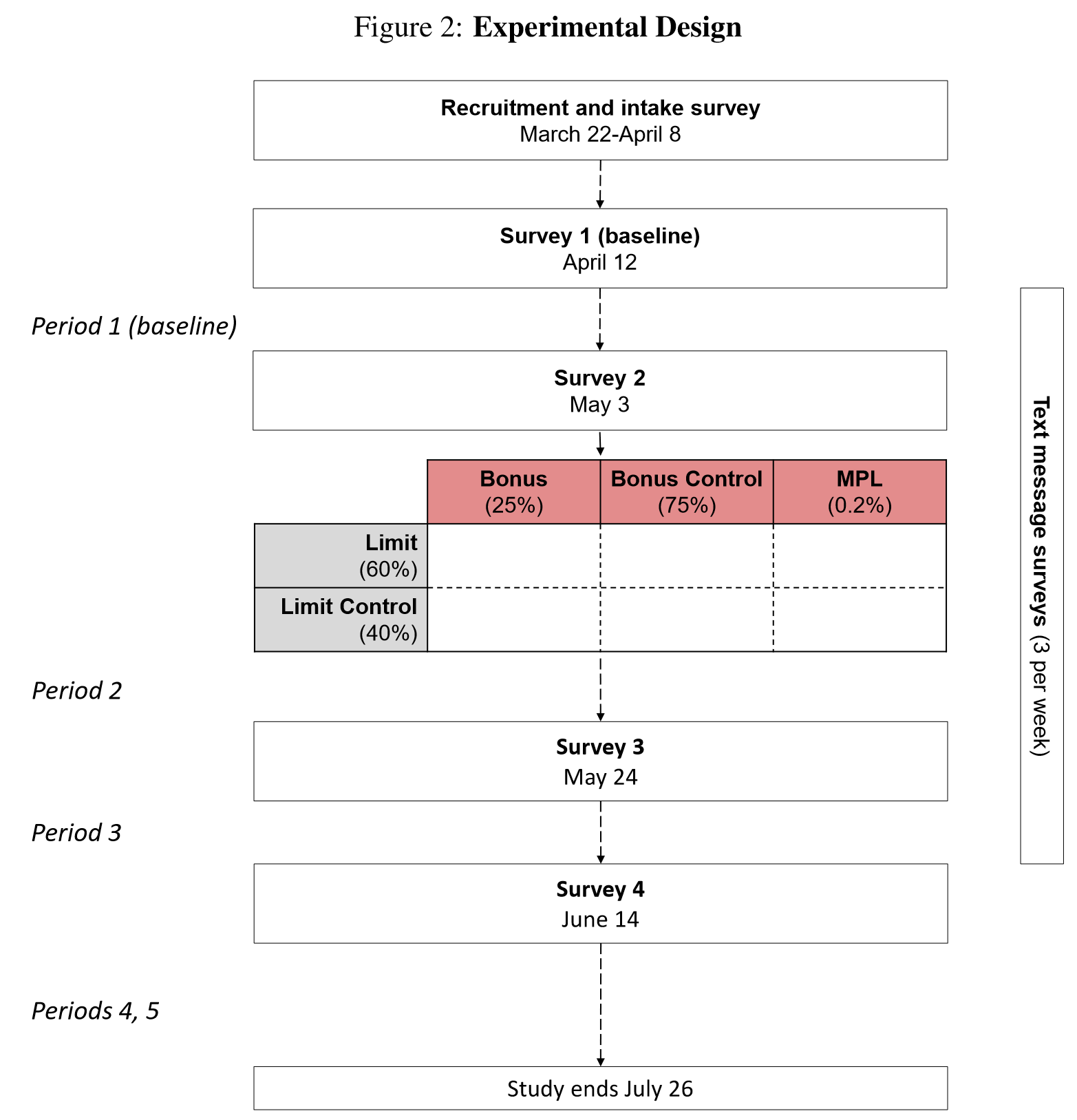
Model-Free Results
Treatment Effect Estimating Equation
outcome var: FITSBY usage at : dummy var in treatment Bonus : dummy var in treatment Limit : baseline usage in period 1 and a dummy when is a survey outcome
Bonus Treatment and Habit Formation
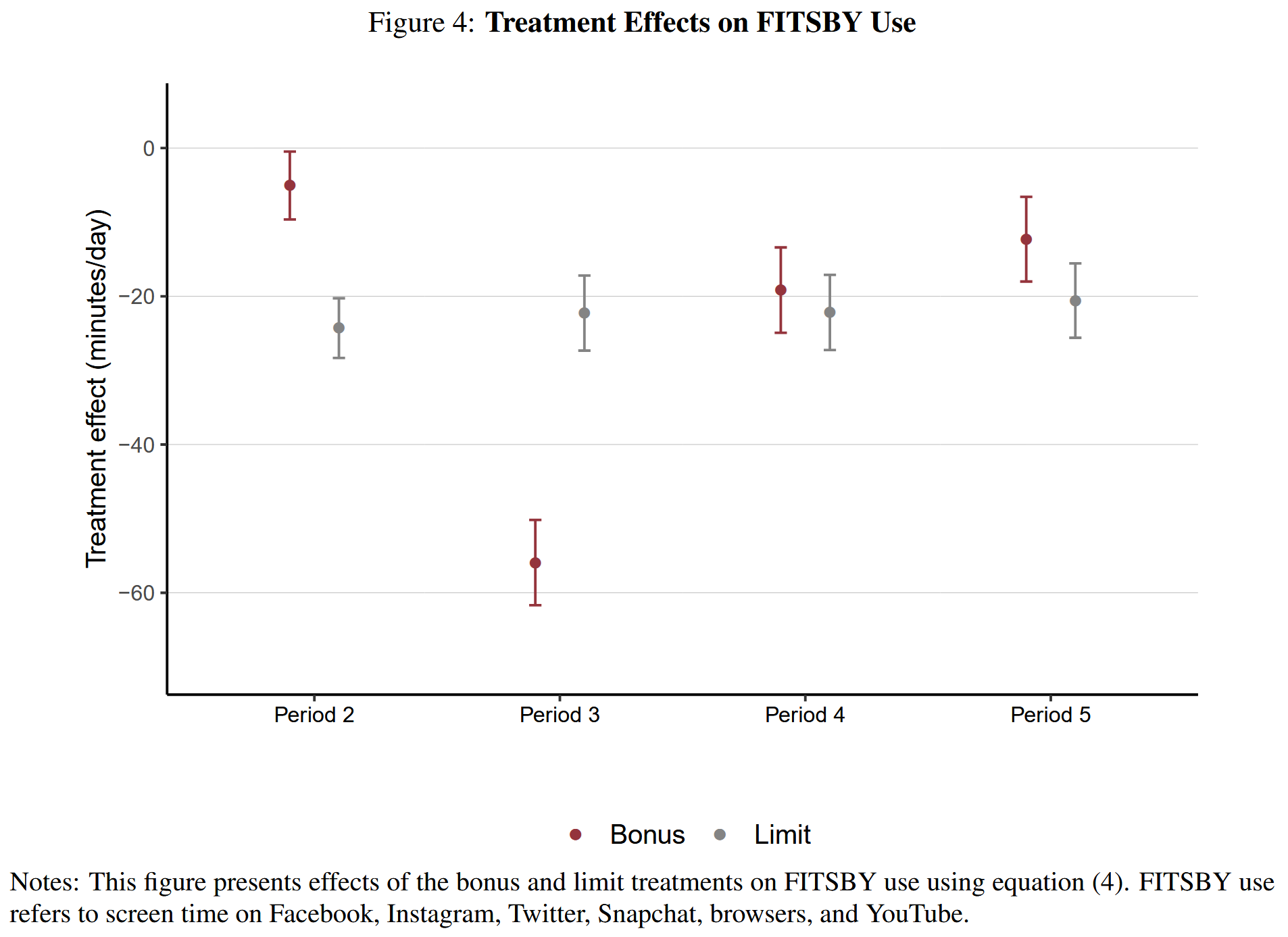
Limit Treatment and Temptation
Limit tightness. document whether the participant have touched the setting limit of each app. Higher score = more temptation for that app
Substitution
data issue: people not use on phones but then use other devices
Survey 4: asked participants to estimate their FITSBY use on other devices in period 3 compared to the three weeks before they joined the study
Results. Bonus treatment reduce usage on other devices by 8.1 mins/day but Limit treatment increase on other devices by 4.8
This paper shows that the treatment decrease the FITSBY use, however, increase the usage of other apps.
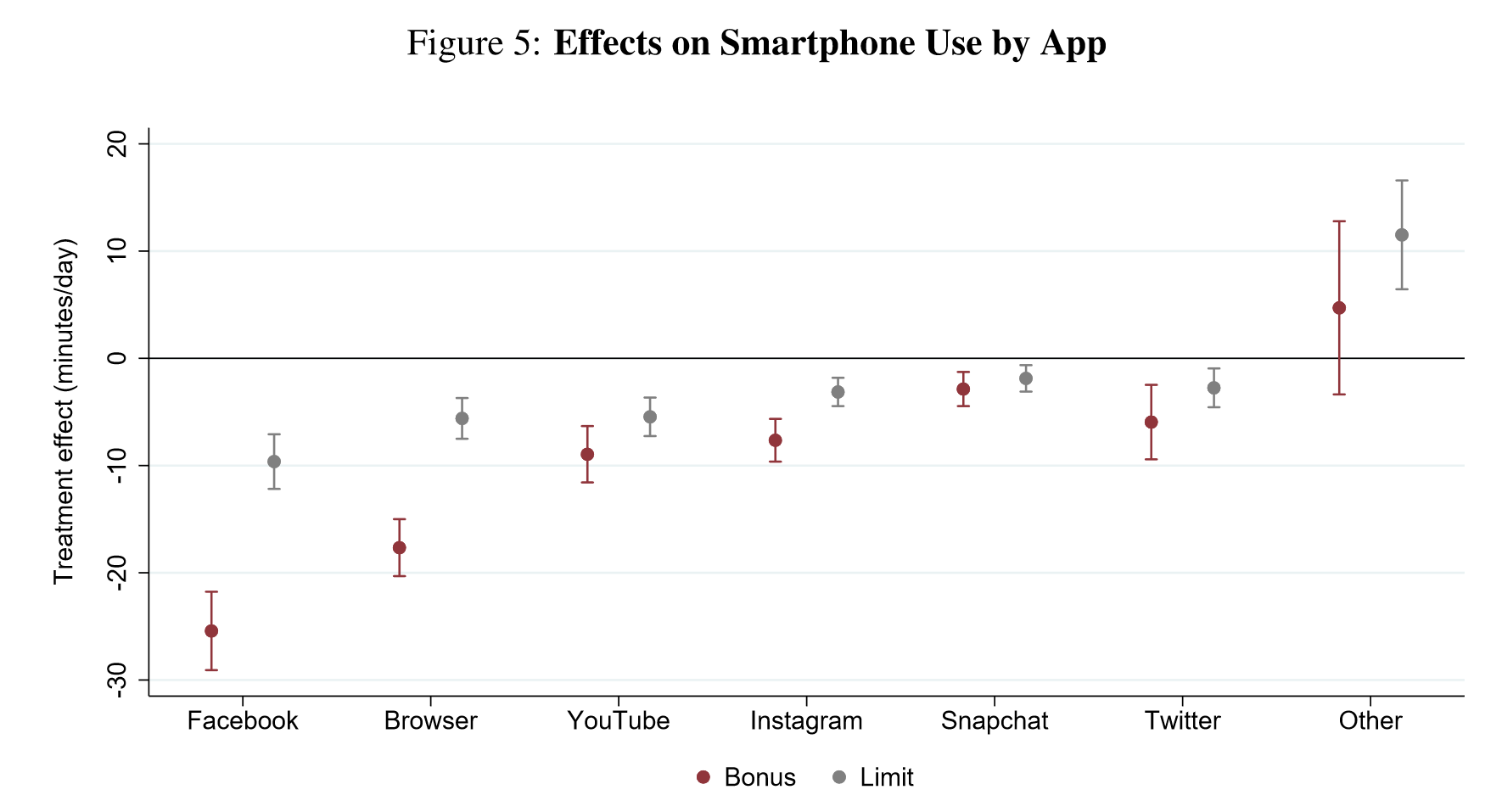
Predicted versus Actual Use
winsorize predicted use at no more than 60 minutes per day more or less than actual use in the corresponding period
left-most in red: actual usage
other in right: predicted in different surveys
We can see that prediction is underestimated.
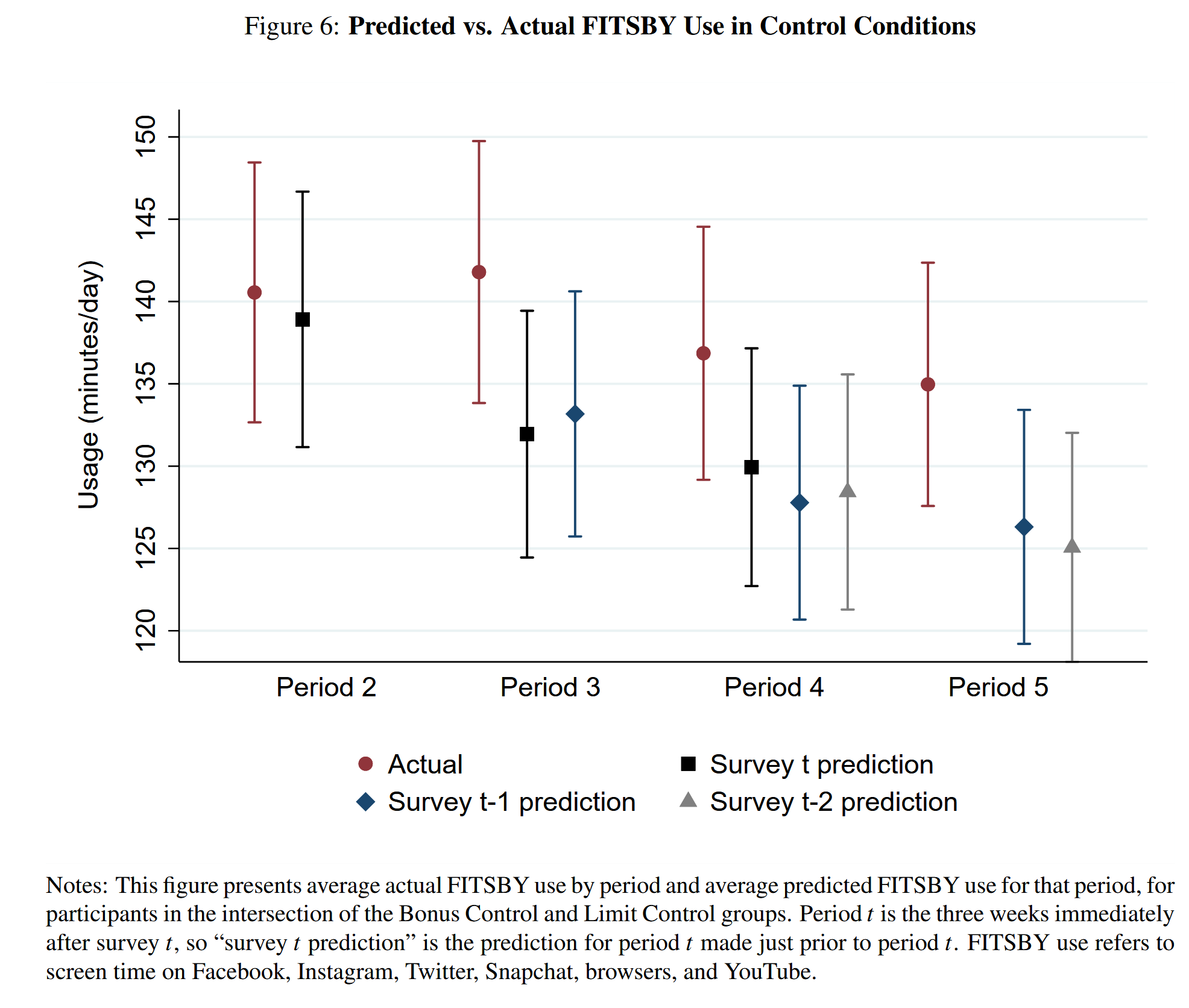
people correctly predict that the bonus will reduce their consumption in period 3 and that this reduction will persist even after the incentive is no longer in effect
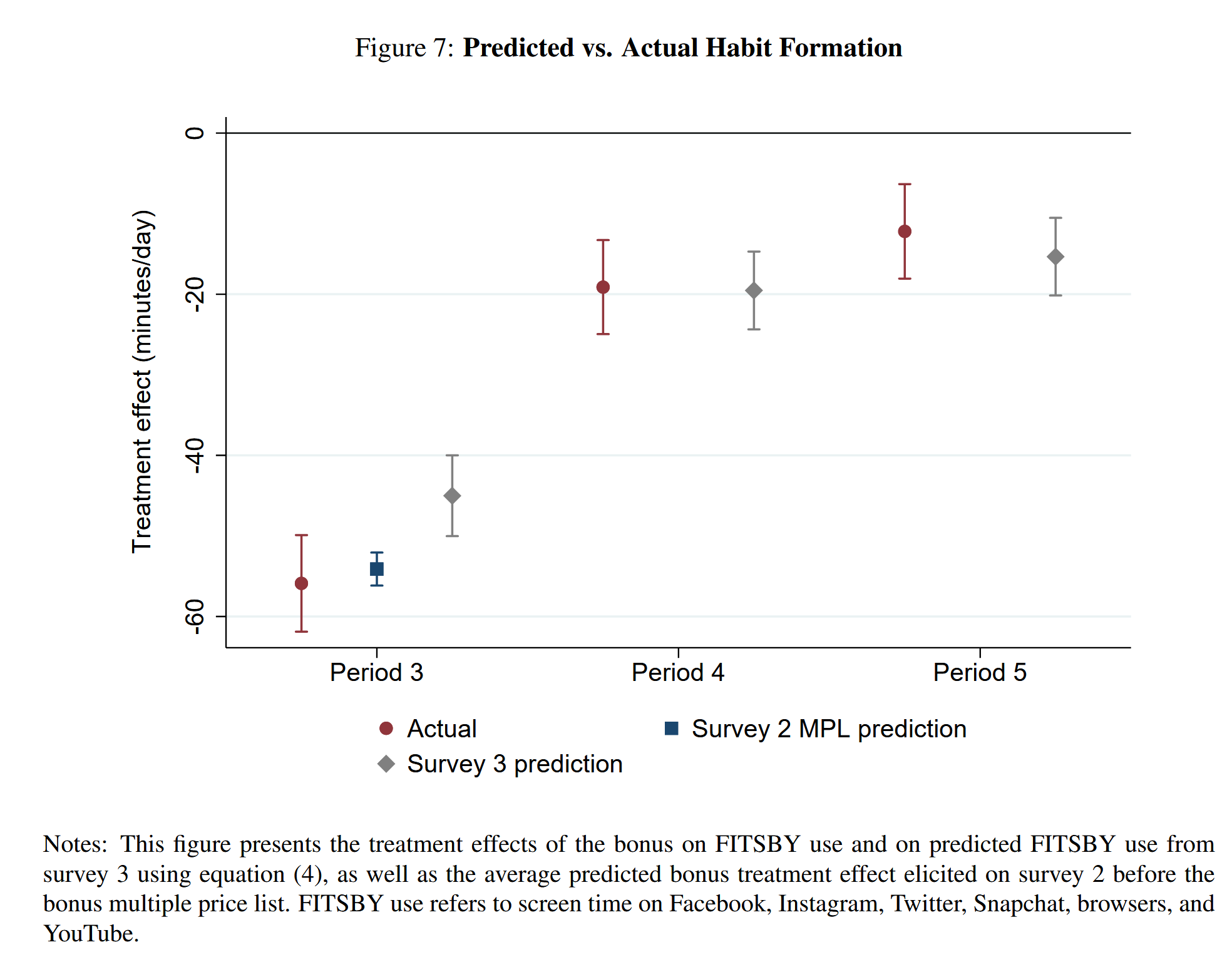
Bonus and Limit Valuations
On the survey 3 multiple price list, the average Limit group participant was willing to give up a $4.20 fixed payment for three weeks of access to the limit functionality
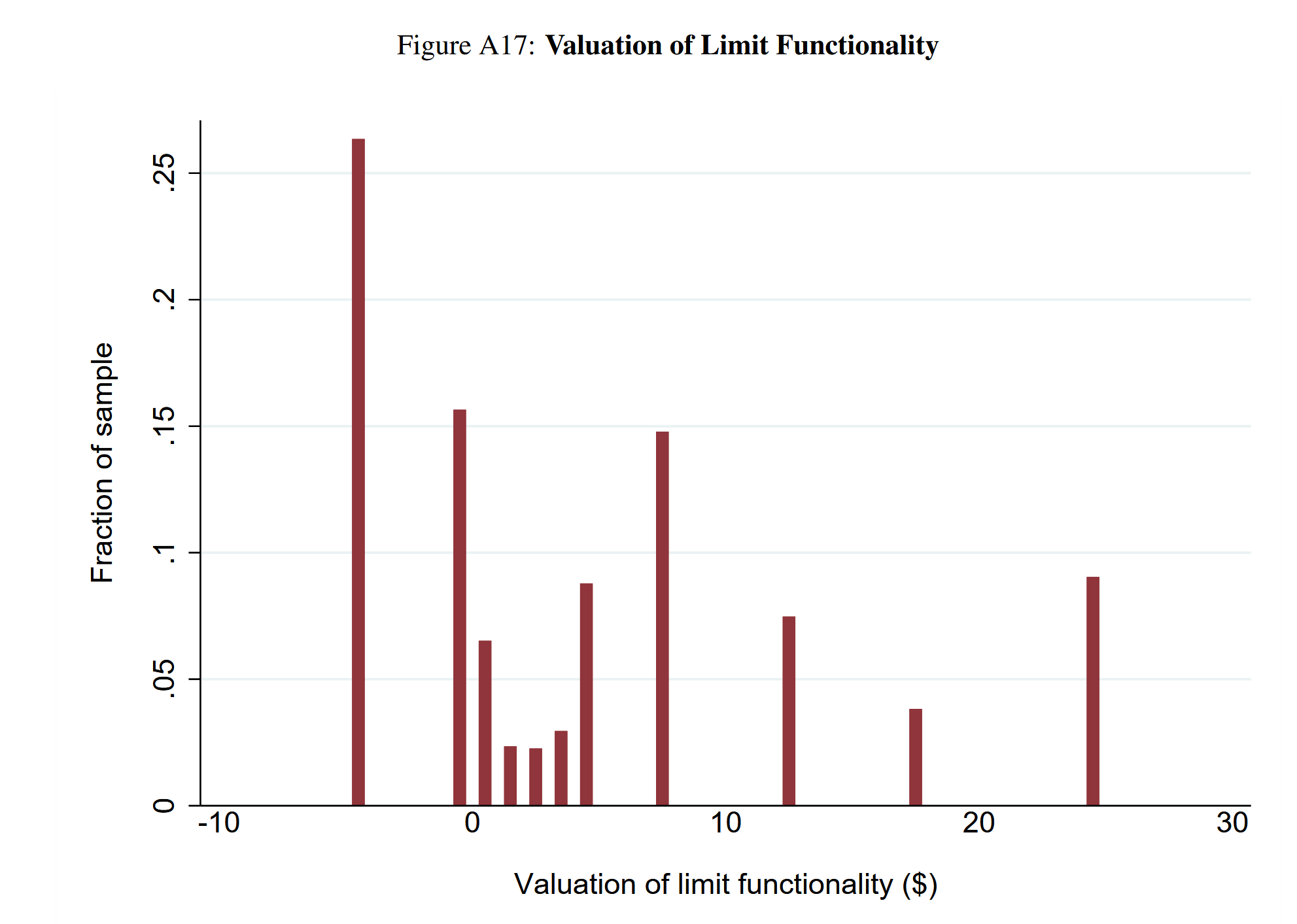
Effects on Survey Outcomes
both interventions reduced self-reported measures of addiction
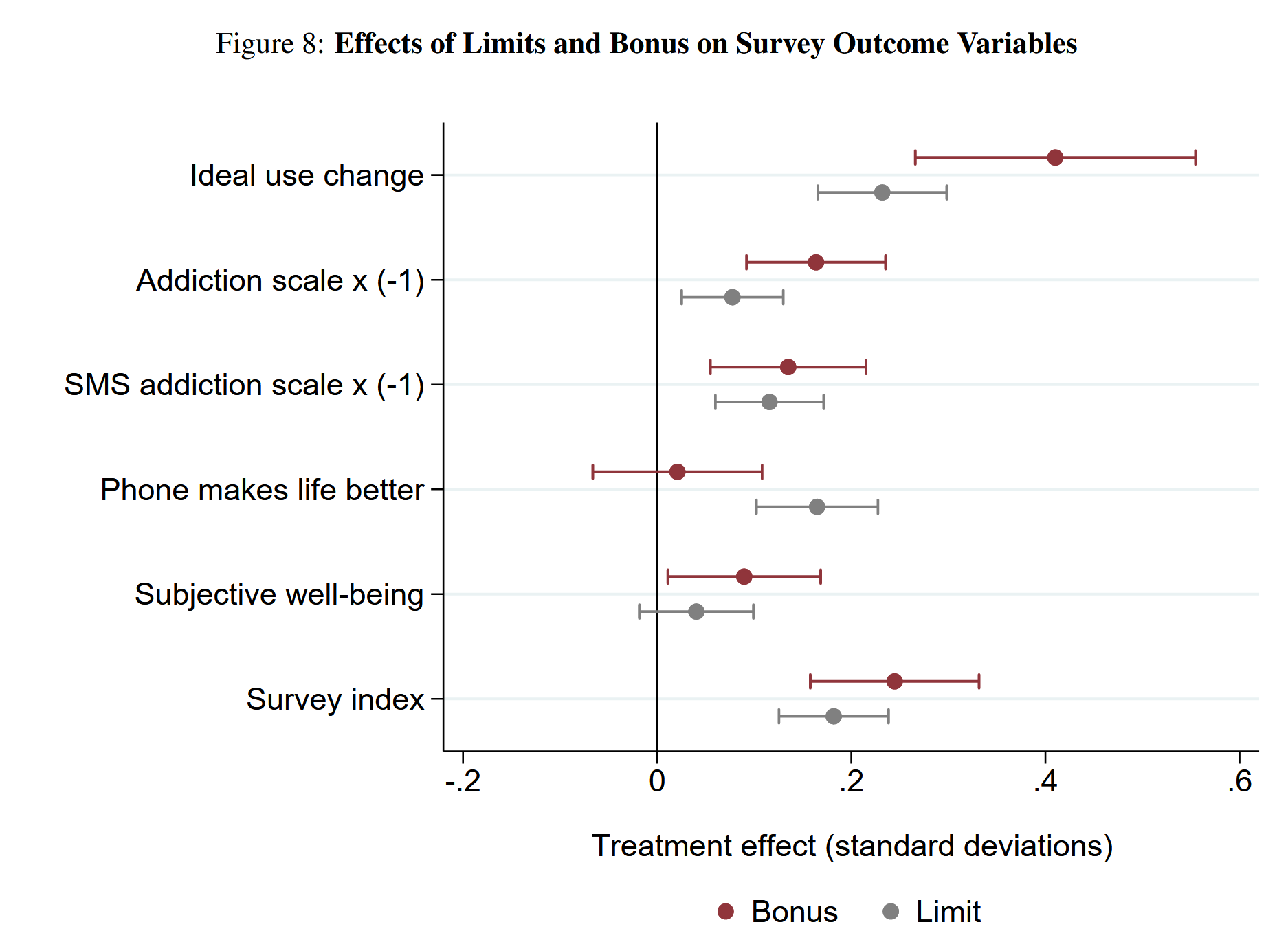
Structual Estimation
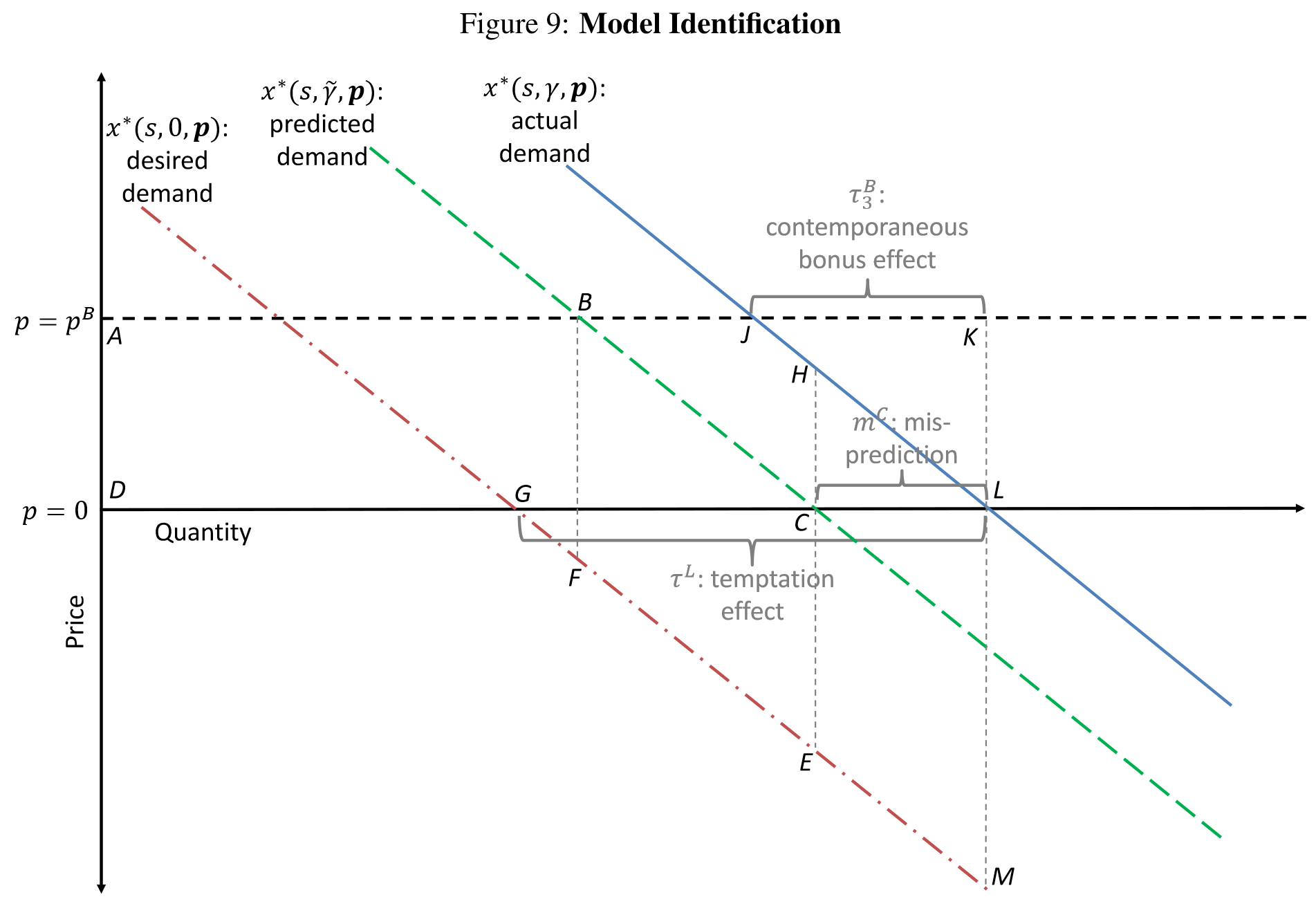
Counterfactuals
how steady-state consumption would change in counterfactuals where we eliminate self-control problems